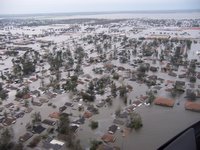 Today's post is to recognize five courageous "veterans," men who are admirable because of their steadfastness, genuine natures, and willingness to stand up for principles. My hat is off to Keith Olbermann, Woodward and Bernstein, Bob Scheiffer and the late Glenn Ford.
Today's post is to recognize five courageous "veterans," men who are admirable because of their steadfastness, genuine natures, and willingness to stand up for principles. My hat is off to Keith Olbermann, Woodward and Bernstein, Bob Scheiffer and the late Glenn Ford.Olberman commentary lauded- The Washington Note, Steve Clemons' blog, takes a hat off to veteran broadcaster Keith Olbermann for his closing remarks on MSNBC's "Countdown" last night. Olbermann turns out to have a lot more depth than what might be the stereotypical view of a man who also does a radio sports show. (blog contains transcript and a link to the video-worth watching) Quoting Clemons,
Turning historical conventional wisdom on its head, Olbermann compares Rumsfeld to Neville Chamberlain -- another pretender to omniscience-- and by implication really argues that the historical equivalent to Churchill, whom Chamberlin harrassed, is John Murtha.Watergate's standing - The Washington Post is again featuring the Watergate Story . We should always take off our hats to veteran reporters Carl Bernstein and Bob Woodward for their service to the nation during that period in the 1970's. Their brand of investigative journalism, practiced today, would go a long way towards assuring that our nation has a future. Quoting from the intro,
Here is the text of Olbermann's awe-inspiring, profound commentary tonight -- which I hope helps knock Rumsfeld out of his Pentagon perch:
The Watergate investigation brought fame to The Washington Post and the reporting team of Bob Woodward and Carl Bernstein. Woodward relied upon a secret source, dubbed "Deep Throat," who was revealed in 2005 to be FBI official Mark Felt. The duo unraveled a web of political spying and sabotage that had all the elements of a Hollywood saga. In the end, after 40 government officials were indicted and a president resigned, many would conclude that the system of checks and balances worked. Yet, the triangular relationship between public officials, the media and the public was altered forever.Missing the old guy - Veteran news anchor Bob Schieffer will be leaving his anchor post at CBS News tonight. Sheiffer's easy-going style renewed our Six o'clock TV daily news watch. He will be sorely missed. I'll give his replacement a try, but I am not optimistic that we will stay with K.C. The Fort Worth Star-Telegram carried this interesting column about Scheiffer's Texas beginnings, from which I quote,
This has been the most unexpected adventure and the best adventure of my life," Schieffer said Wednesday from New York.The picture of courage - Veteran actor Glenn Ford has died, according to Reuters. I came of age in the 1950's. As such I was an incurable movie fan. I collected 8 x 10 black and white "glossies" - free upon request of the studio. And Glenn Ford had his own pages in my scrapbook. I liked him a lot more than John Wayne. He had a depth and quality of vulnerability that made him a winner with a lot of us, both men and women. The BBCNews published an excellent obit, from which I quote,
When CBS executives asked him to commute from Washington and his Face the Nation show, he thought he'd fill in as anchor for about six weeks.
"I never had any idea I'd be asked," he said. "Certainly no idea I'd be around very long." But CBS' ratings went up.
Ford's great strength lay in staying strong, silent and believable. And in The Blackboard Jungle and Ransom (both 1955), audiences saw a well-meaning young man, facing threatening situations and showing courage under pressure.My hat is off to this group of courageous real men who hang in there when the going gets hard:
These performances were borne out by Ford's life off screen. A captain of the US naval reserve, he saw service in Vietnam, overcame many health problems, and took up hang-gliding at the age of 64.
Aged 76, he married his young nurse, only to divorce her two months later. This, his fourth marriage, he took in his stride.
He once said, "I don't look back. I only think about the next day, the next dinner and the next film."
- To Olbermann for taking a principled stand against the outrageous behavior of the current administration
- To the Watergate Guys - Woodward and Bernstein - for courageous writing during a very scary time
- To Bob Scheiffer for his courageous authenticity during thick and thin
- To Glenn Ford for being a silver screen hero and a genuine human being in a town where that is hard to do for such a long time















